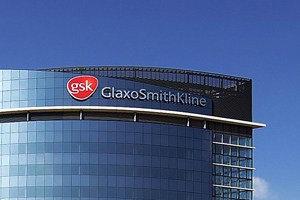 GlaxoSmithKline and Pfizer have teamed up to study two of their melanoma compounds as a combination therapy for the skin cancer.
GlaxoSmithKline and Pfizer have teamed up to study two of their melanoma compounds as a combination therapy for the skin cancer.
The phase I/II trial will look at the effects of adding Pfizer’s investigational drug palbociclib to treatment with GlaxoSmithKline’s already-marketed MEK inhibitor Mekinist (trametinib), one of two GSK drugs for melanoma approved earlier this year.
Palbociclib is an oral inhibitor of cyclin-dependent kinases (CDK) 4 and 6 and one of Pfizer’s top pipeline prospects, having been granted breakthrough status by the FDA in April as a treatment for breast cancer.
Trial 200344 is a dose-escalation, open-label study designed to determine the recommended combination regimen for trametinib plus palbociclib in patients with melanoma. It will also evaluate the effect of the combination on tumour biomarkers, safety and anti-cancer activity in patients with BRAFV600 wild type melanoma, including those with NRAS mutations.
Garry Nicholson, head of Pfizer’s oncology business unit, said the company wants to boost the value of its portfolio by looking at drugs in combination, with both its own treatments and those of other companies.
The two companies will collaborate on the study, although GSK will carry it out. Financial terms of the agreement have not been disclosed.
The treatment of melanoma has been transformed by the launched of Bristol-Myers Squibb’s anti-CTLA4 immunotherapy Yervoy (ipilimumab) and Daiichi Sankyo/Roche’s BRAF-targeting Zelboraf (vemurafenib) which are well on their way to achieving blockbuster status.
GSK is also carrying out a combination trial with Mekinist and its BRAF inhibitor Tafinlar (dabrafenib) and analysts have suggested this could help it surpass Zelboraf and claim the number two spot in the market behind Yervoy.
Xalkori approved
Meanwhile, Pfizer also announced that the FDA has fully approved its non-small cell lung cancer drug Xalkori (crizotinib), which was granted an accelerated registration in 2011 under the US early-access regulations.
The approval is based on data from a confirmatory phase III trial – called PROFILE 1007 – which compared Xalkori to standard chemotherapy in previously treated patients with metastatic ALK-positive NSCLC.




